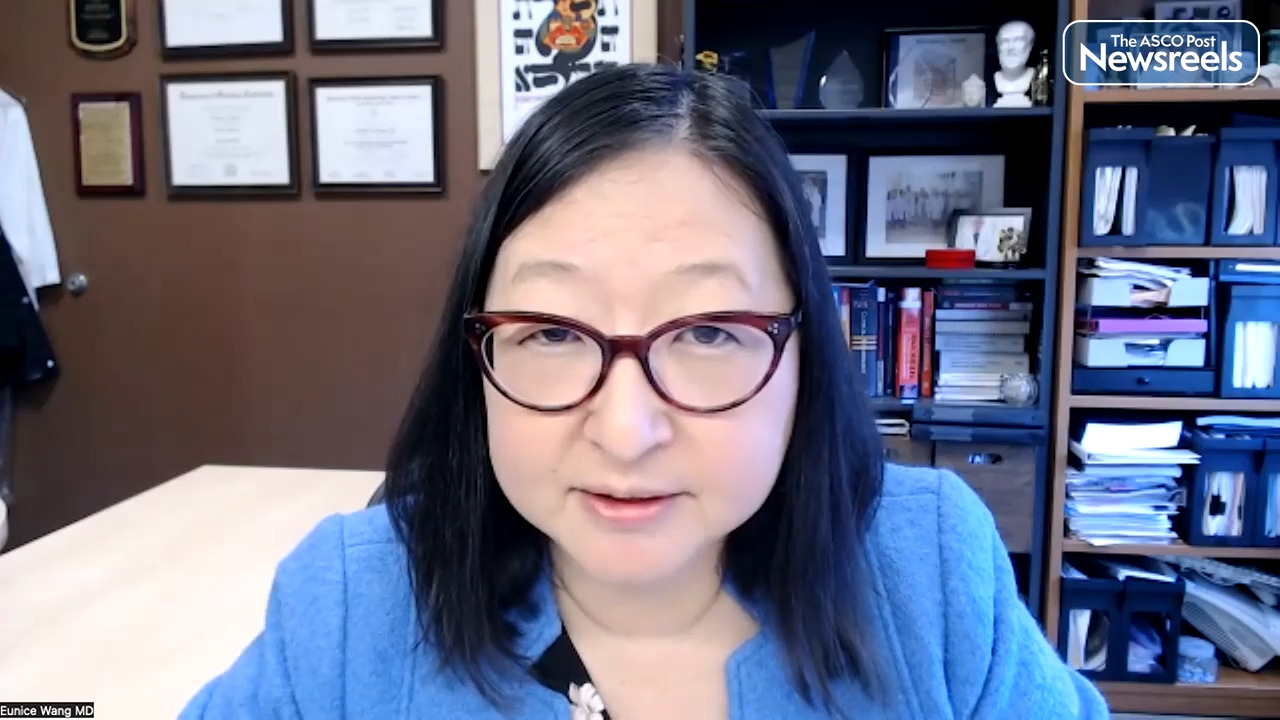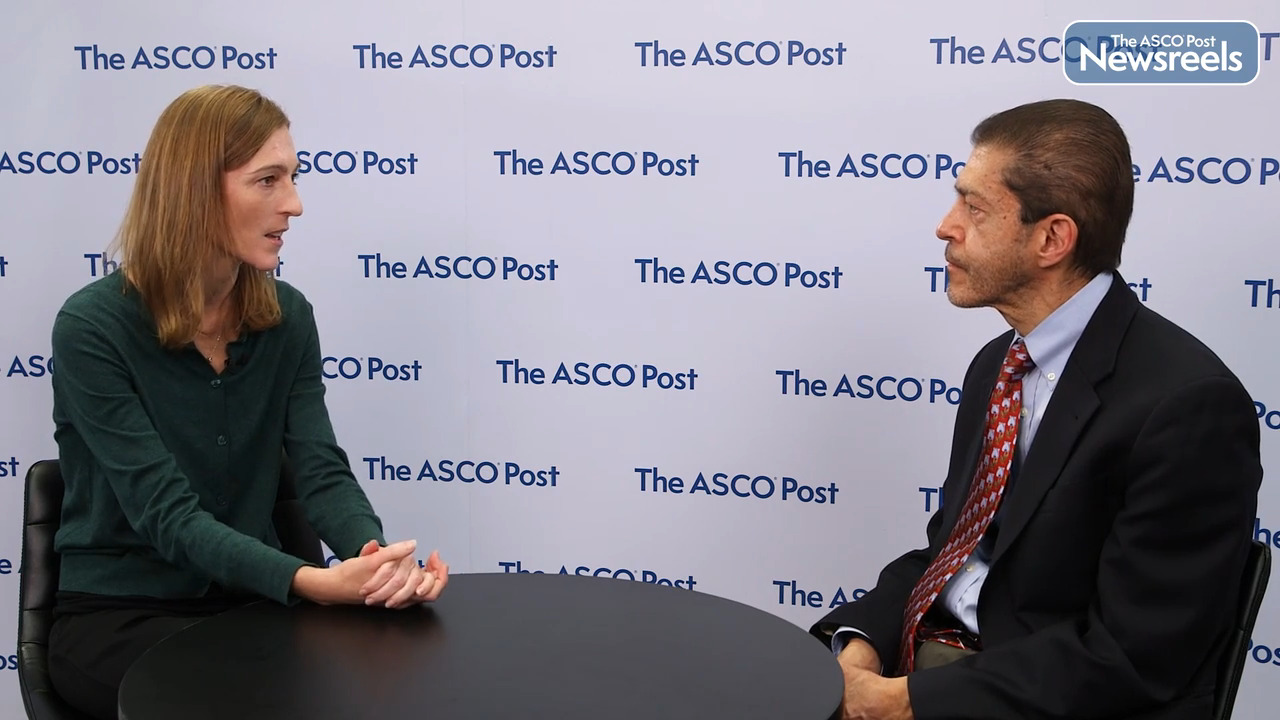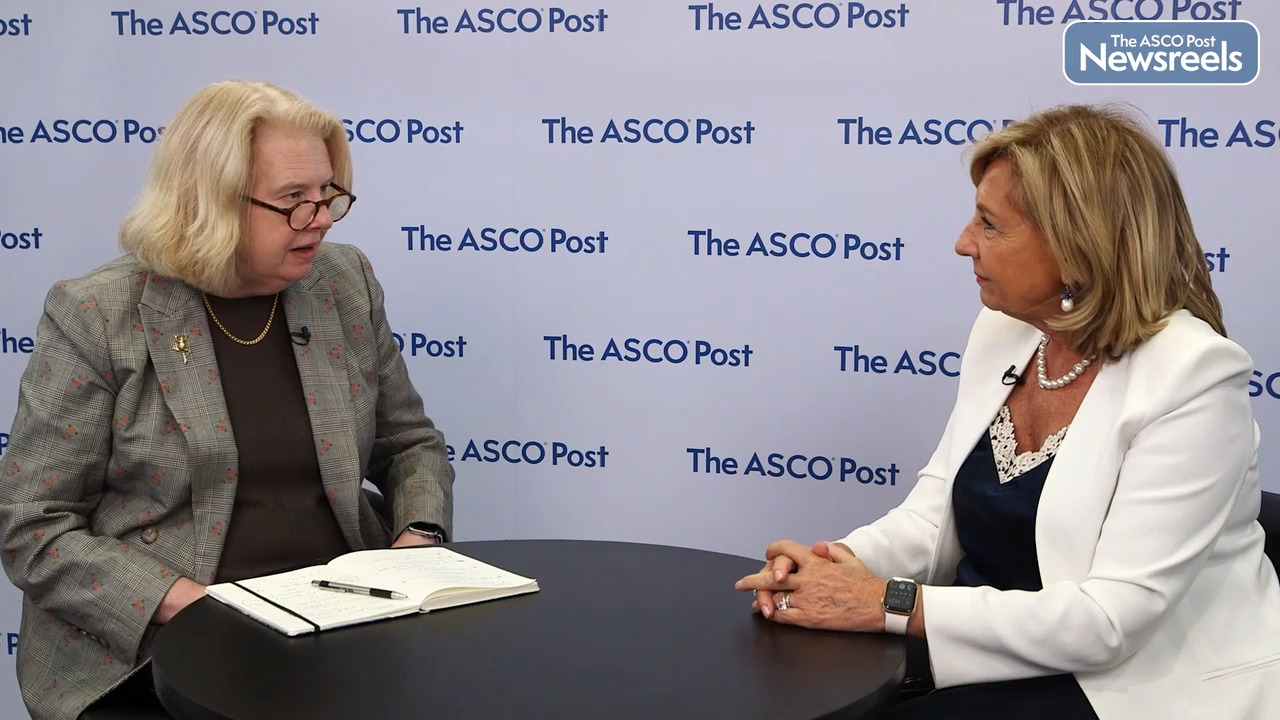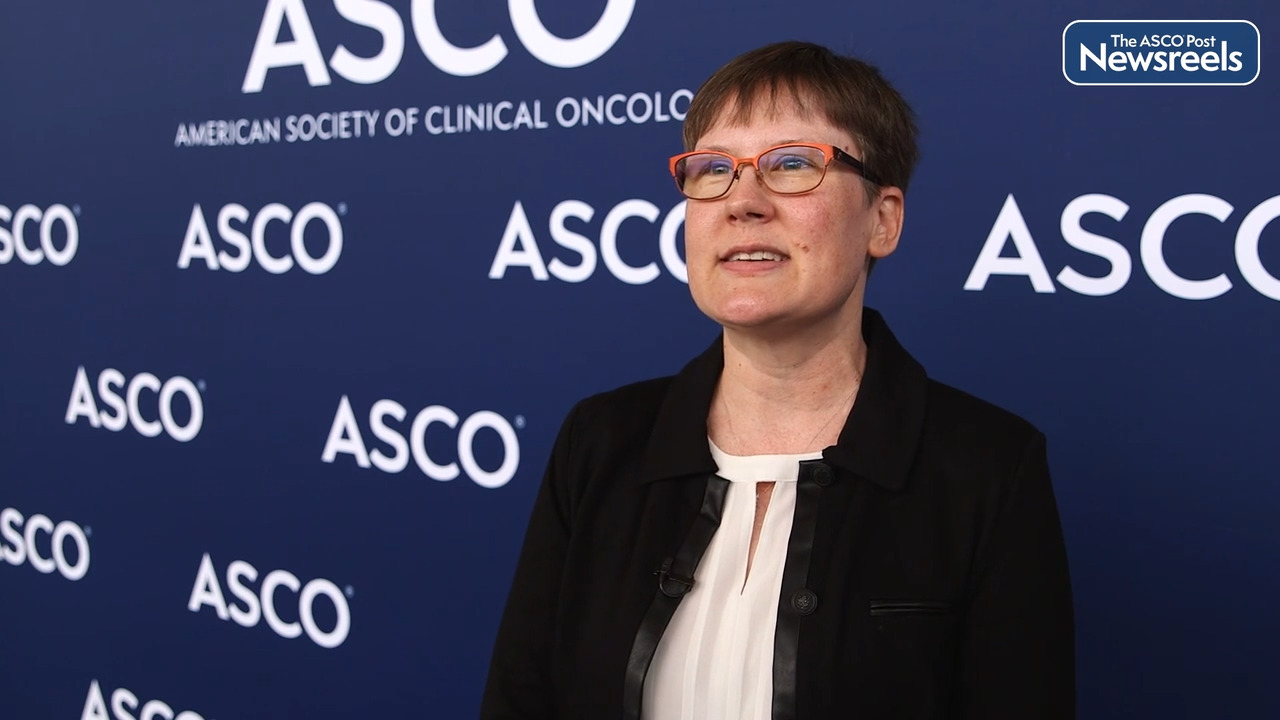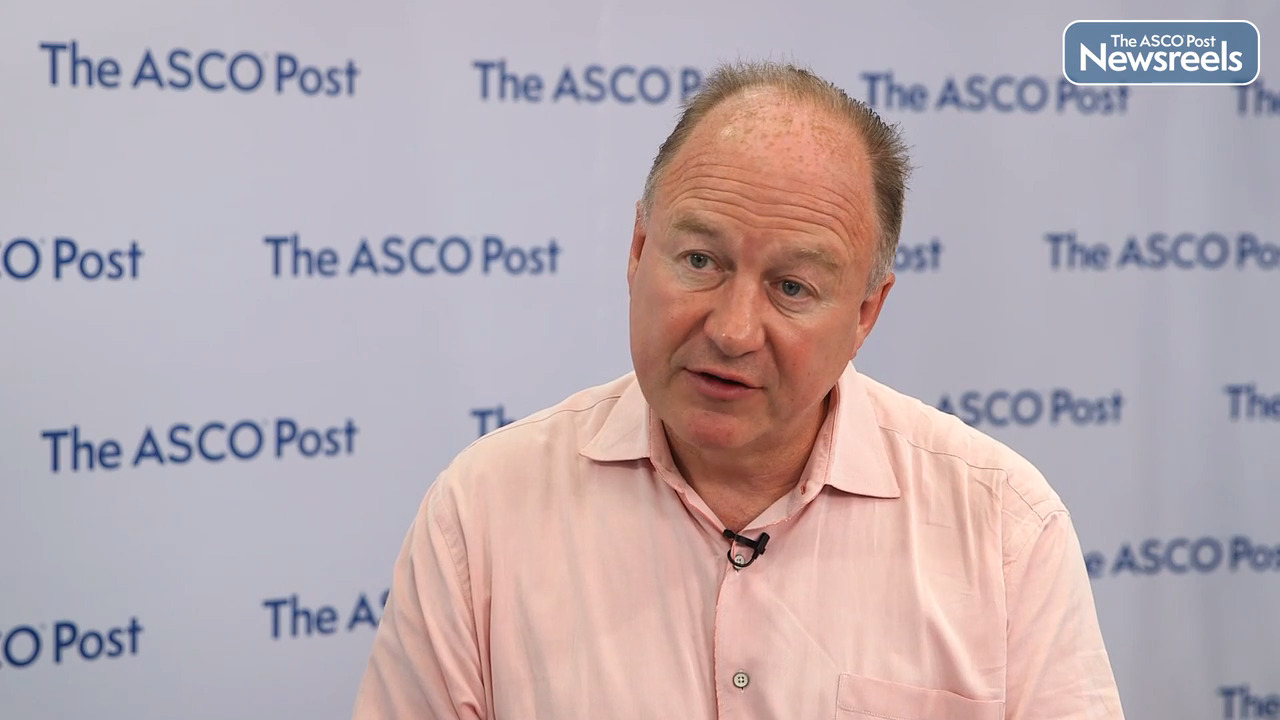Transcript
Disclaimer: This video transcript has not been proofread or edited and may contain errors.
Michael Overman: Takayuki, great to have you here. Really exciting that you're here presenting the PARADIGM data. Congratulations on such a large, meaningful frontline study. First of all, can you tell us the design and then the primary endpoint and what that outcome was, to start with?
Takayuki Yoshino: Thank you very much. The PARADIGM study is the first prospective study to test the superiority of panitumumab over the bevacizumab in combination with the standard chemo, modified FOLFOX6 treatment, in patients with RAS wild-type metastatic colorectal cancer in the first-line setting. Primary endpoint in this study is the overall survival in the left-sided population, defined as descending colon, sigmoid colon, rectosigmoid, and/or rectum. We also adopt in a hierarchical way, if the OS in the left-sided is of statistical significance, we move over to test the OS in the overall population, defined as both left-sided and right-sided primary tumor location, regardless of the primary tumor location. And so this is our current study design. Of course, we also calculate the number, 800 patients, needed to conduct this study in overall population.
Michael Overman: So, positive study for the primary endpoint, correct?
Takayuki Yoshino: Yes. Yeah, yes.
Michael Overman: For overall survival. Maybe one of the questions we can dive in a little bit is the PFS curves overlay, and yet you have that overall survival separation, which is similar to what we've seen before with the FIRE-3 data. What is your explanation or hypothesis for that kind of finding that we've seen before?
Takayuki Yoshino: Yeah. Yeah. Thank you very much. So I believe that, consistent with the previous report, that PFS is consistent between two arms, as expected. Another indicator of difference, favoring panitumumab is the response rate, depth of response, and also the curative resection rate. So I believe that such other factors as depth of response, curative resection, response rate, also be associated with a prolonged overall survival. In addition, this study, I mentioned about the subsequent level is a very similar second line over. So I believe that these three factors mostly important. In addition, our trial PFS definition of the event of the PFS is that if the patient who receive the curative intent surgery transferring before progression without surgery. So this transferring the method also will diminish the OS, PFS benefit. I believe that.
Michael Overman: Okay. It's good to hear. I agree. There's a lot of questions on why, and I think I kind of agree with all those and that leads to the overall survival separated later on, 28-month delay. And I think, in part, you would say the same reasons, maybe that depth of a response that curative resection intent would be why we see that separation later?
Takayuki Yoshino: Yes. PFS is very comparable similar to that today, the 28 months from randomization. Curve is completely overlapped. However, from the 28 from randomization, separation bigger. And then this separation is gradually bigger and bigger: three-year time point, four-year time, five-year time point. This trial with a median follow-up of 61 months, so five year. I believe that this late separation associated with the maximum tumor shrinkage as well as the R0 resection, both.
Michael Overman: Yeah, no, makes sense. For the take home for the audience and the practitioners, now what is your statement on left-sided RAS/RAF wild-type patients? What is the standard that you would say then, for now?
Takayuki Yoshino: My takeaway message that current to the US condition that circumstance, many doctors still use the bevacizumab in the first-line over anti-EGFR antibody. Two important factors are the skin toxicity issue, as well, the timing of the last testing. US is still not require initiating treatment. So I want to say that considering the balance of the calcium toxicity, still panitumumab should establish a new standard of care RAS wild-type on the left-sided population. So US physician also, reconsider about the testing timing of the last before initiation of the first-line therapy. And then of course during the managing toxicity, skin toxicity especially, and then you should consider the anti-EGFR antibodies in the first-line setting over bevacizumab, is my takeaway message.
Michael Overman: Yeah, no, I agree with you. I think the data we're seeing and accumulated and really your data confirming that we really need to think differently and move more to that anti-EGFR space on the left RAS/RAF wild-type side. So I completely agree with you and again, thank you for that fantastic data.
Takayuki Yoshino: Yes. Thank you very much. Yeah. I'm very excited. Thank you very much.
